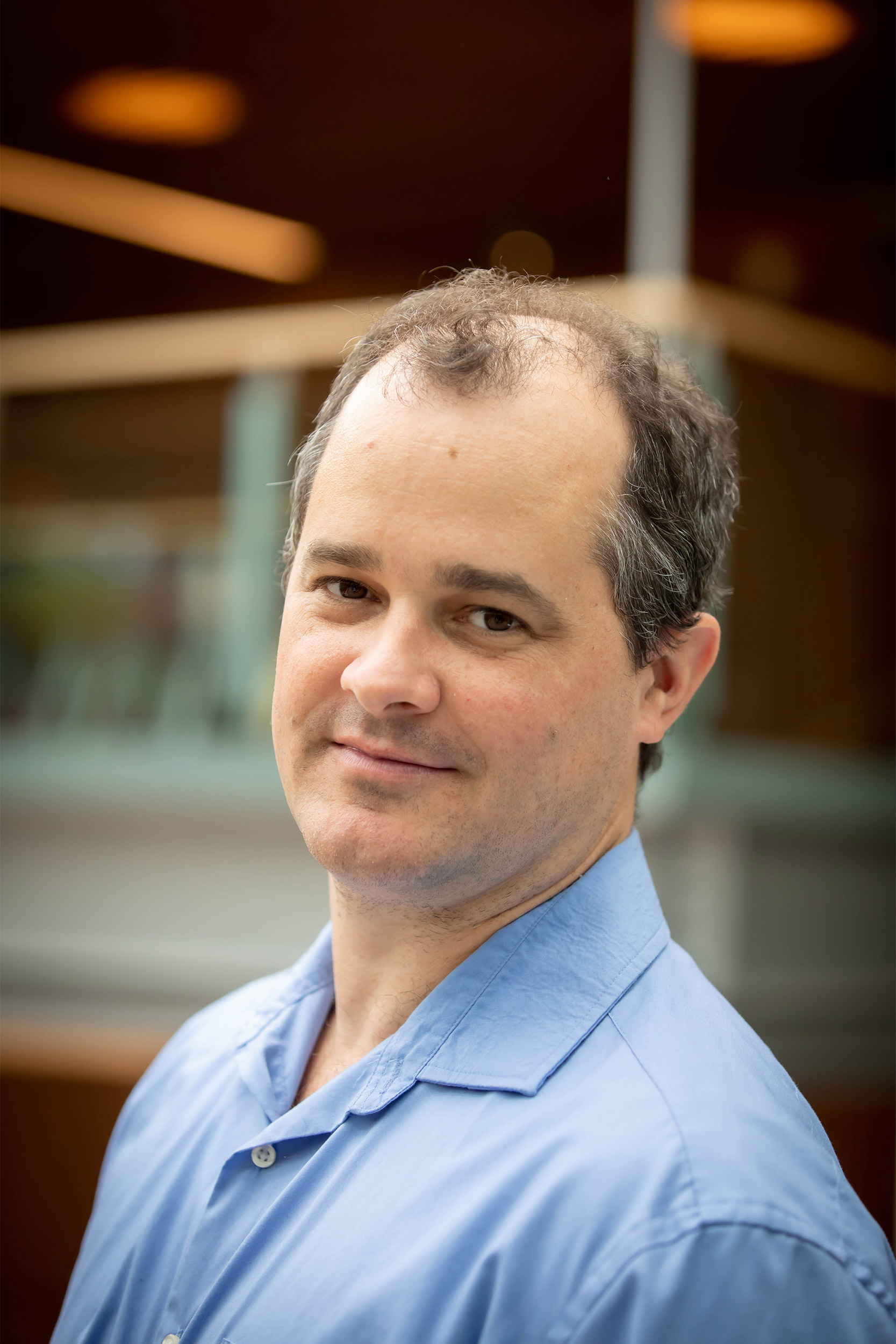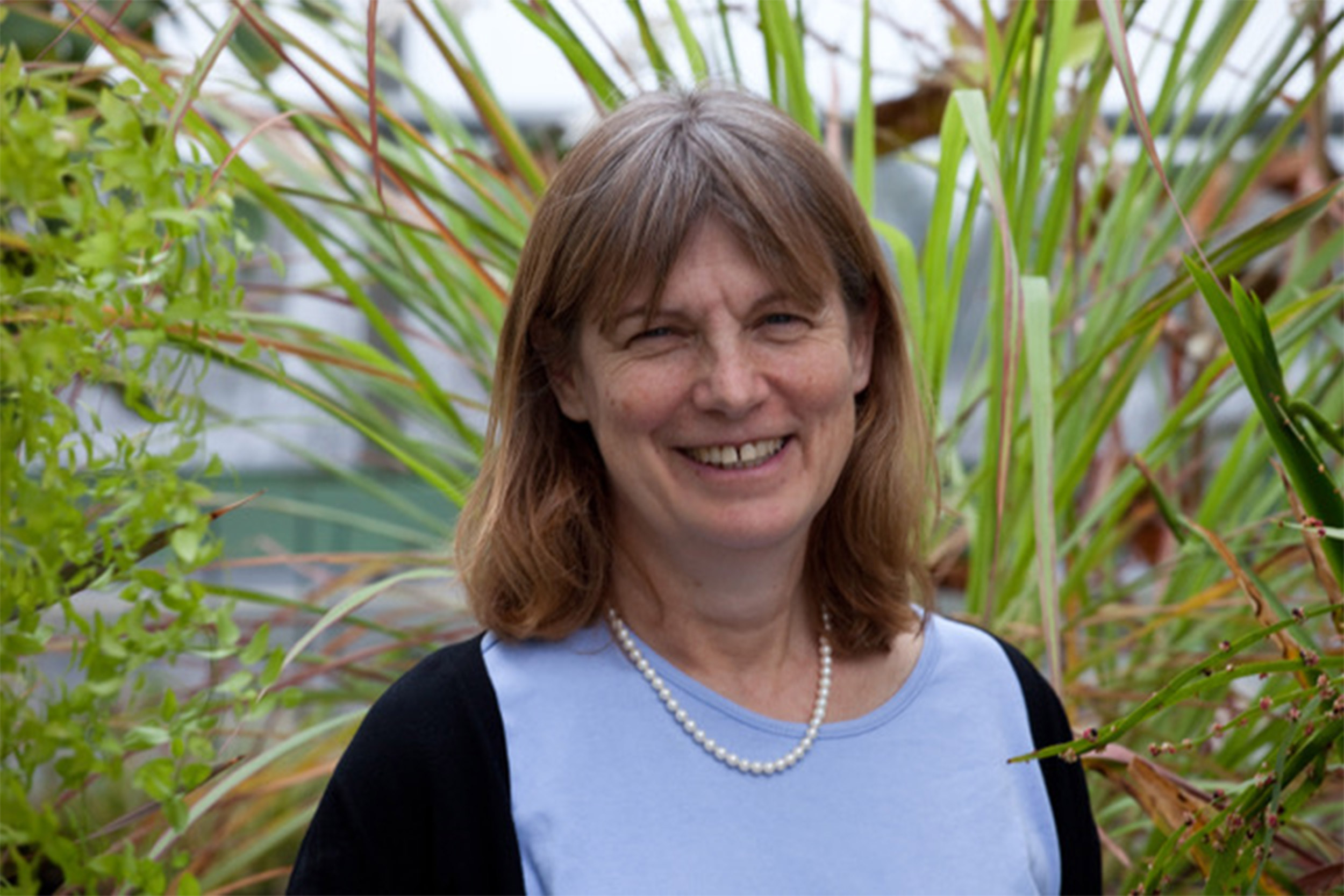
The Committee on Climate Education has made available a survey seeking input from all facets of the Harvard community.
Kris Snibbe/Harvard file photo
What climate education should look like
The Committee on Climate Education asks the Harvard community for new visions
As part of the University’s broader strategy on climate change, the Committee on Climate Education is examining what teaching and learning about climate should look over the next decade. The group recently released surveys seeking input from students, staff, faculty, alumni, and affiliates.
The Gazette spoke with committee co-chairs Dustin Tingley, professor of government and deputy vice provost for advances in learning, and Noel Michele “Missy” Holbrook, the Charles Bullard Professor of Forestry, professor of organismic and evolutionary biology, and director of the Harvard Forest, to learn more about the committee’s work. This interview was edited for clarity and length.
Q&A
Dustin Tingley and Missy Holbrook
GAZETTE: Why are teaching and learning about the environment and sustainability so critical when it comes to fighting the climate crisis?
HOLBROOK: The climate crisis is here. It’s now, it affects everyone, and all of our students are inheriting this. One of the most important ways Harvard can impact how the world continues to tackle this crisis is through our students. If we are going to make a difference, we need our students to be ready to take on the work of confronting the climate crisis. But they won’t be effective if they’re not educated in this area. It’s not enough just to be interested in it, you need to be knowledgeable, and all disciplines have bearing on this. It’s not just a technological, economic, or political issue, but it also involves the humanities — getting people’s hearts and minds behind the work. It’s a very broad endeavor, and it’s important that we do this, because the climate crisis is so urgent.
TINGLEY: Harvard students are going to be some of the leaders of the next generation and leading the fight on climate requires a multifaceted view of the issue. It is something that Harvard is uniquely positioned to take a leadership role in because of the multifaceted nature of Harvard as an institution. Very few institutions have the professional schools, the programs, and the resources that we have. Those are incredible assets to meet an incredible challenge, and education is the way that we meet that challenge because climate touches almost everything that we teach about. I’m hard-pressed to come up with a discipline or social issue that in some way doesn’t have a connection. A great example is the problems around race and social justice, which will, in many parts of the world, be exacerbated by climate change. And so, climate presents an educational opportunity that facilitates that broad spectrum of learning opportunities, which we can then provide to our students, our faculty, our staff, and our alumni, no matter what their expertise is.
HOLBROOK: It’s not that we think climate is the only crisis, or that everything has to be remade around climate, but it is an important and timely moment, and it is incredibly broad in its reach.

TINGLEY: There have been lots of conversations, focus groups, etc., that our colleagues on the committee have been doing. I think that oftentimes expertise operates in a way that doesn’t think about the people who we’re trying to engage with. Our students, staff, and alumni have had amazing lived experiences themselves, so we’re trying to develop an approach to education that is welcoming of those diverse experiences, and that you might not get if you simply were to just talk to the experts. Like the work our committee is doing, getting responses from our survey is an opportunity to generate ideas from that diversity of experience.
It’s also a recognition that our students’ educational experience does not end with the classroom. In fact, many students will articulate all the other things that they do that can connect with this topic, like internships, clubs that they’re in, and so forth. If we don’t hear those perspectives and use them to build a robust approach to education that includes those opportunities, then we’re really missing a bigger, more holistic, educational perspective for the institution.
The same thing goes for alumni, who also have much to offer. They’ve experienced Harvard, but they’ve also had experience out in the world. They can help open that gamut of experiences that we want to be exposing our students to, and it is extremely welcome for the challenge that we’re dealing with here.
GAZETTE: Could you give some examples of the scale of opportunities and ideas that you’re hoping to get from folks in the community?
HOLBROOK: Some of the most interesting educational spaces, whether they be intellectual or physical, are the spaces between the Harvard’s conventional departments, disciplines, and Schools. Dustin and I are both involved in the undergraduate concentration called Environmental Science and Public Policy, which is one of the broadest undergraduate academic endeavors because it draws faculty from multiple professional Schools. We have undergraduates who take classes at the Kennedy School and at the Design School, and faculty from across the University, and that lets us tap into some of the things that get lost in those spaces between disciplines. That’s a small example, but I think it illustrates how we want to take advantage of those synergisms and the important connections and creative spaces that fall between our more traditional boundaries.
TINGLEY: We’re also thinking a lot about ideas that will not only serve as an educational opportunity but also scale Harvard’s actual impact itself in this space. Are there spaces where we can deploy Harvard students to work with groups at the forefront, where they can make real, tangible impacts on the climate crisis, while also having important learning experiences? Those are real opportunities and need to be done in close partnership with communities and organizations, but sometimes we don’t think in those terms when it comes to climate education.
“One of the most important ways Harvard can impact how the world continues to tackle this crisis is through our students,” says Michele Holbrook.
Courtesy of Michele Holbrook

GAZETTE: What kinds of responses have you been getting from folks that you’ve been reaching out to and talking with?
TINGLEY: We’ve really hit a nerve, and people are craving this opportunity. And unleashing the educational entrepreneurs of the future is what this committee is going to help do.
HOLBROOK: We’re finding out that there are more people, more corners, more places, where there’s a super appetite for climate education. Where work is already being done, where people want more, and where people are really interested. The scope of this is, in some ways, broadened beyond what you might have started out thinking would be a narrow range of interests.
GAZETTE: This initiative joins many other outstanding climate and sustainability groups doing work at Harvard. How do you plan to collaborate with them?
TINGLEY: There have been pockets of incredible climate education work happening here for a long time, which I think is important to point out, and moving forward with this project we’re hopeful to build on that work and increase its scope and inclusivity. Lots of those partners are the people we have on the ground now, like the Harvard University Center for the Environment and the Harvard Business School’s Business and Environment Initiative. There are also several initiatives starting up right now around climate-related digital education for a broader and beyond-Harvard audience by the Office of the Vice Provost for Advances in Learning and Harvard Business School Online, for example.
We also have a set of faculty, who are drawn from the different Schools and are working on ideas and opportunities within their Schools, and then starting to think about opportunities that exist across Schools. We are engaging and having meetings with everyone ranging from deans to the president of Undergraduate Council to the Shared Interest Group Harvard Alumni for Climate and the Environment. The advantage of what we’re doing here is that we’re drawing in that multifaceted perspective and thinking about, for all of these things, how do we leverage these on-the-ground type organizations and institutions in order to push the ball forward?
GAZETTE: What is the next step after the committee gets the results from the survey?
TINGLEY: All of the thoughts, experiences, and ideas that people share will get folded into a report that will guide our strategy on how to catapult Harvard to be a leader in climate education. From there, Vice Provost [James] Stock, who will receive the report, will be able to work with the president, the provost, and all the deans to identify opportunities that we can invest in to make that happen.
HOLBROOK: We have an ambitious timeline for this report of one semester, but I think that speaks to the fact that we want to get going. We could spend years talking about how to do climate education. That’s one of the reasons that getting input from people without delay is so critical. A response to climate is needed now, there’s not a year to discuss.
Help shape the future of climate education across Harvard. Those with HarvardKey access can take the committee’s internal survey to share their perspective on climate education. Affiliates without access to HarvardKey can visit the external survey to share their ideas. If you are an alum without a HarvardKey, you can visit the online FAQ to access one.




